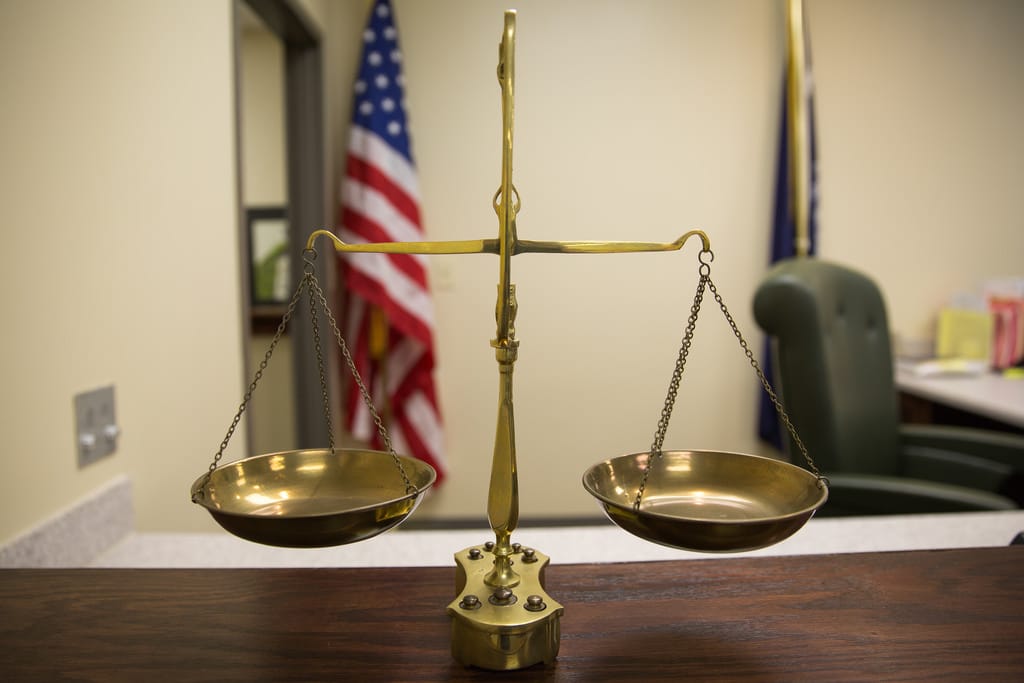The VA benefits system was designed to be a non-adversarial, veteran-friendly system. The idea is that the VA exists to provide benefits to veterans who have earned those benefits through their service to this country. In an ideal world, veterans would apply for and be granted benefits without a need for representation because the employees of the VA would assist them in filing and developing their claims. Unfortunately, that is not always the case in the real world. In the real world, veterans are faced with a back-logged and broken system which produces delays in receiving healthcare and benefits. The veteran-friendly design of the VA benefits system, however, does provide some advantages to veterans that applicants for other federal benefits programs do not receive. Veterans traditionally have benefitted from relaxed requirements for filing a claim as well as from relaxed standards of evidence required to prove a case.
Anyone who has watched a crime show on television is familiar with the standard of proof (or evidentiary standard) required to convict someone of a crime. To send someone to jail for a crime, the prosecutor must show that it is “beyond a reasonable doubt” that the accused committed the crime. This standard is exceptionally high in order to prevent innocent people from being convicted of crimes that they did not commit.
To obtain VA benefits, a veteran need not even approach “beyond a reasonable doubt.” Veterans need only show that it is “as likely as not” that his or her current VA disability was caused by military service. This standard is also called a “preponderance of evidence.” In other words, if there is even slightly more evidence for than against a veteran’s case, the VA is supposed to award benefits.
This relaxed standard of proof leads to what we call the “benefit of the doubt” rule. This VA rule requires that after the VA considers all evidence in a veteran’s case, if it finds that the favorable and unfavorable evidence is approximately balanced (or in equipoise, to use the VA’s term), the benefit of the doubt goes to the veteran. To use baseball terminology, the tie goes to the runner. So if there’s a 50/50 chance that the veteran’s disability began during or was caused by service, the veteran is entitled to benefits.
This benefit of the doubt rule might come into play, for instance, where the veteran submits a medical opinion from his doctor which indicates that his back disability was caused by years of limping from his service-connected knee disabilities. The VA then gets a compensation and pension (C&P) exam where the examiner’s opinion is that the back disability was not caused by the limp. If both examiners have based their opinions on the correct facts and valid medical literature, and the evidence is otherwise equally split between favorable and unfavorable evidence, the evidence can be said to be equally balanced, or in equipoise. In that circumstance, the VA should grant benefits to the veteran. If, however, the VA determines that the veteran’s medical opinion was not based on the correct facts or was not based in valid medical literature, it has the freedom to determine that the evidence is not balanced and decide against the veteran.
So, while the benefit of the doubt rule can be a powerful tool in favor of the veteran, it is not a magic wand to repair cracks in the veteran’s case. The benefit of the doubt rule does not require the VA to accept the veteran’s account of events if other evidence contradicts
The benefit of the doubt rule, however, is widely misunderstood and is often the source of great frustration for claimants. Despite what many believe, the rule does not mean that VA must make an award anytime a claimant submits an account of an event supporting an award. The rule also does not mean that VA has to believe a claimant, a claimant’s spouse, or claimant’s doctor when other evidence is in conflict with their statements. VA is always required to weigh such evidence against other evidence, such as service records or other medical opinions, but VA can find other evidence more convincing.
All the rule really means is that when all the evidence on a particular issue is equally balanced between positive and negative, VA must give the benefit of the doubt to the veteran on that particular issue. The rule only applies when there is a close call on some issue: when the evidence tilts one way or the other, the rule does not apply. Further, giving the benefit of the doubt on one issue does not mean the entire claim must be resolved in favor of a claimant. This is because the rule is applied to individual issues, not an entire claim. So, for example, resolving whether a certain event occurred during service using the benefit of the doubt rule does not have any effect on the issue of whether there is a nexus between the incident and a current condition. If the evidence is strongly against a nexus, the claim will still be (correctly) denied.
Pursuant to 38 C.F.R. § 3.102, any reasonable doubt must be resolved in favor of the appellant “[w]hen there is an approximate balance of positive and negative evidence regarding any issue material to the determination of a matter.” “The Secretary shall consider all information and lay and medical evidence of record in a case before the Secretary with respect to benefits under laws administered by the Secretary. When there is an approximate balance of positive and negative evidence regarding any issue material to the determination of a matter, the Secretary shall give the benefit of the doubt to the claimant.” 38 U.S.C. § 5107(b).
“When after careful consideration of all procurable and assembled data, a reasonable doubt arises regarding the degree of disability such doubt will be resolved in favor of the claimant.” 38 C.F.R. § 4.3. Section 3.102 defines the term “reasonable doubt” as used in § 4.3 as doubt “which exists because of an approximate balance of positive and negative evidence which does not satisfactorily prove or disprove the claim.” 38 C.F.R. § 3.102; see Ortiz v. Principi, 274 F.3d 1361, 1364 (Fed. Cir. 2001) (stating that section 3.102 “restates” the provisions of 38 U.S.C. section 5107(b) (benefit of the doubt) in terms of “reasonable doubt”). Thus where the Board concludes that the evidence is not in equipoise, specific consideration of section 4.3 is not warranted. See Schoolman v. West, 12 Vet. App. 307, 311 (1999) (explaining that where the preponderance of the evidence is against an appellant’s claims, “the benefit of the doubt doctrine does not apply”). Mayhue v. Shinseki, 24 Vet. App. 273, 282 (2011).
Perhaps the analogy most helpful to an understanding of the “benefit of the doubt” rule is that the standard is similar to the rule deeply embedded in sandlot baseball folklore that “the tie goes to the runner.” If the ball clearly beats the runner, he is out and the rule has no application; if the runner clearly beats the ball, he is safe and, again, the rule has no application; if, however, the play is close, then the runner is called safe by operation of the rule that “the tie goes to the runner.” Similarly, if a fair preponderance of the evidence is against a veteran’s claim, it will be denied and the “benefit of the doubt” rule has no application; if the veteran establishes a claim by a fair preponderance of the evidence, the claim will be granted and, again, the rule has no application; if, however, the play is close, i.e., “there is an approximate balance of positive and negative evidence,” the veteran prevails by operation of 38 U.S.C. section 5107(b). Gilbert v. Derwinski, 1 Vet. App. 49, 55-56 (1990).
The Court has held that the failure of the BVA to apply the benefit of the doubt rule or to set forth clearly its reasons for not applying it constitutes error. See O’Hare v. Derwinski, 1 Vet. App. 365, 367 (1991); Sussex v. Derwinski, 1 Vet. App. 526, 529 (1991). In addition, the Court notes that 38 U.S.C. 1154(b) provides specifically that the Secretary “shall resolve every reasonable doubt in favor of the veteran.” 38 C.F.R. § 3.302. Furthermore, when the BVA can cite no evidence or facts by which to impeach or contradict a claim, there is no justifiable basis upon which to deny application of the doctrine under 38 C.F.R. § 3.102. Sheets v. Derwinski, 2 Vet. App. 512, 516-17 (1992).
Because the benefit of the doubt rule only applies in these specific situations, the rule is not applicable to many claimants. In cases where there is significant evidence in support of a claim, however, VA must provide a satisfactory explanation as to why the evidence was not balanced enough to apply the rule if the decision was adverse to the claimant.





